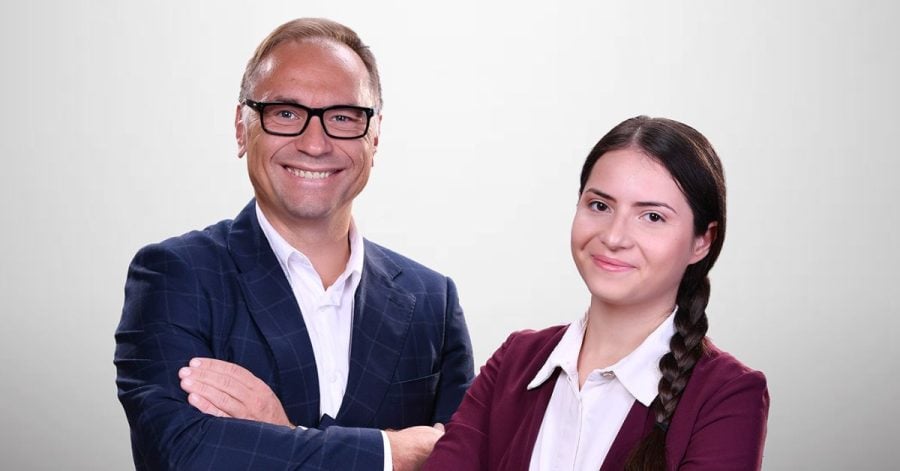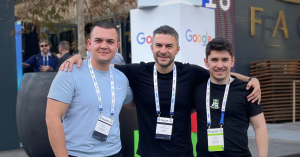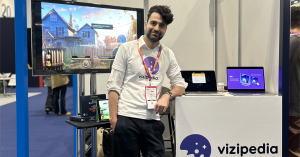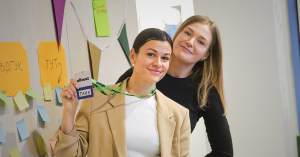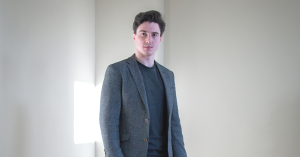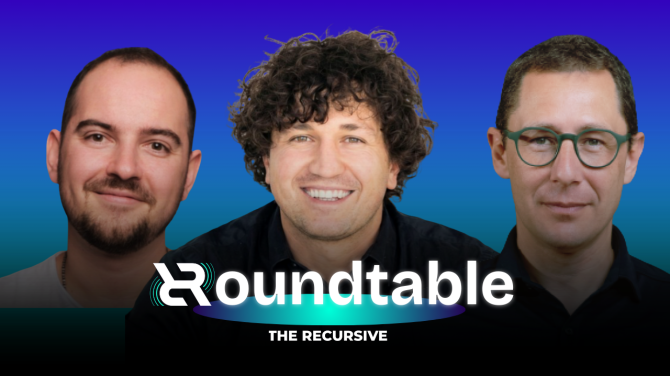Have you ever attended a company training for a new product or a service and remembered very little, or almost none of it afterwards?
One Macedonian startup aims to change that, by introducing a platform that enables companies to provide much more effective training for their employees.
For Konceptiva and its co-founders Aleksandar Ackovski and Kalina Trajanoska, the idea for the product came while they were previously working on a project for the Italian luxury car brand Maserati.
“One of our clients was Maserati and we worked with them on digitizing their training. Before this, they were doing training in a paper format and very old technologies like Flash. They used to gather their employees at a seminar whenever they had a new Maserati model and gave them booklets with the info and details. However, their sales reps didn’t master the car specs from those booklets straight away, but rather when they were faced with a specific question from a customer on the new Maserati model, which affected customer satisfaction and actual sales,” Konceptiva’s CXO Ackovski tells The Recursive.
Shortly after, Ackovski, an architect turned UX designer, combined his knowledge and experience with the skills of software engineer Trajanoska to come up with a unique solution.
Thus, the idea for Coach – the micro-learning platform that detects and fixes knowledge gaps, was born. In essence, the platform allows corporations and their HR departments to provide interactive training with elements of gamification to their employees. Kind of like Duolingo, but for work.
“Through the example with Maserati we saw all of the challenges that most companies are faced with in this process – first, they don’t have an overview of what knowledge their sales reps have on a topic, and what particular knowledge they lack, since after the training they only test them once. Another issue is that most booklets are very difficult to navigate, and the third issue is that the salespeople themselves aren’t really motivated to go back and go over those trainings,” Konceptiva’s CEO Trajanoska explains.
According to Trajanoska, Coach solves these issues by having employees use the app for just three to five minutes a day.

“Coach uses quiz games to test employees’ knowledge continuously, even after the initial training. It enables them to improve by playing regularly, as shown by the proven methodology of spaced repetition. Additionally, the algorithm is personalized, so for example if three employees are learning the same training, then each of them will get specific questions catered to their existing knowledge on a product or a service,” Trajanoska tells The Recursive.
“The product uses gamification in a way that engages those using it, affects their motivation, makes the process of learning interesting, and brings fun to the process,” Ackovski adds.
New funding round and expansion plans
Ackovski and Trajanoska had been working on the concept since the end of 2019, building a fully featured platform suitable for large companies.
After officially launching the platform in March this year, four months later Konceptiva already has three big clients from the pharmaceutical and the electricity supply industry in North Macedonia.
“Before our first investment of €100K in December 2021 from the XFactor Accelerator in Veles, we bootstrapped. We also got an investment from the FITD (North Macedonia’s Fund for innovation and technology development) to support us for the next 12 months. However, we are launching a funding round now because we have big plans for expansion and conquering new markets,” Trajanoska tells The Recursive.
Additionally, Konceptiva got further validation of the methods Coach uses after it was piloted by a Macedonian private high school with a group of students.
“They used Coach only for 5-6 minutes a day and they had great results – the students were competing with each other, it was very engaging for them, and there was an increase in their knowledge of 30% on average, and in some cases even up to 80%,” Trajanoska points out.
While this showcases that Coach has a huge potential in the EdTech industry as well, for Konceptiva at the moment the main focus is in HRtech, Sales Enablement and how to help companies reduce the so-called “knowledge gaps” that their employees have.
“The gaps in knowledge about a certain product could mean losing a lot of potential sales, and it could also prove as hazardous for workers themselves – for example if they don’t how to operate a certain machine they could get injured, or cause a mistake in a batch of products – so all of these gaps are critical for companies and their business operations, and Coach helps them avoid it,” Trajanoska concludes.

